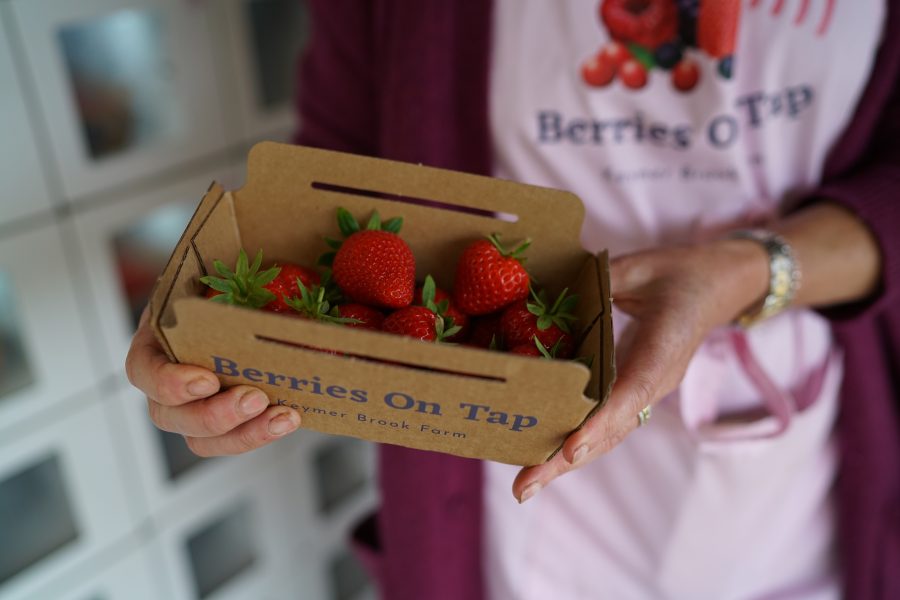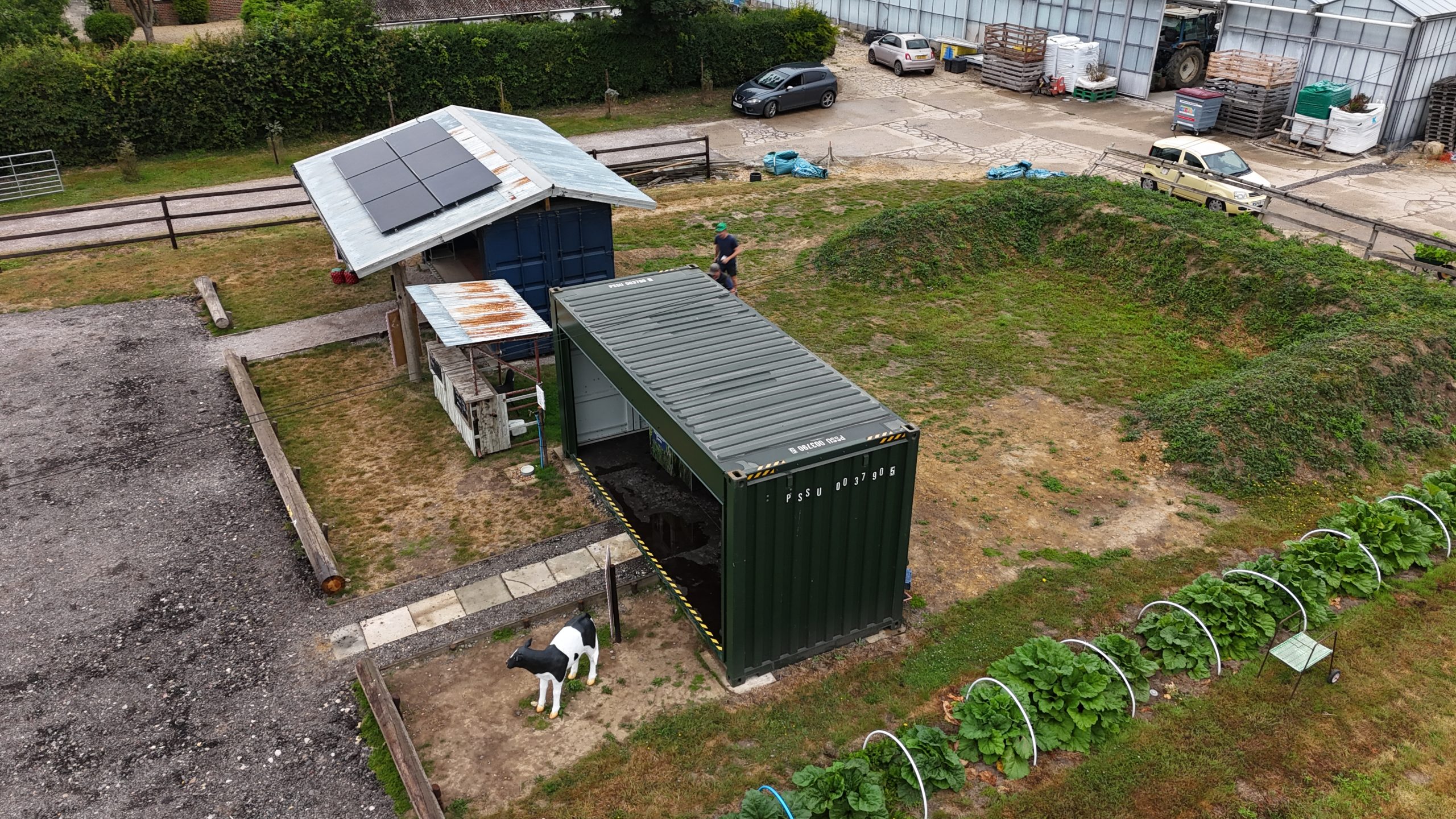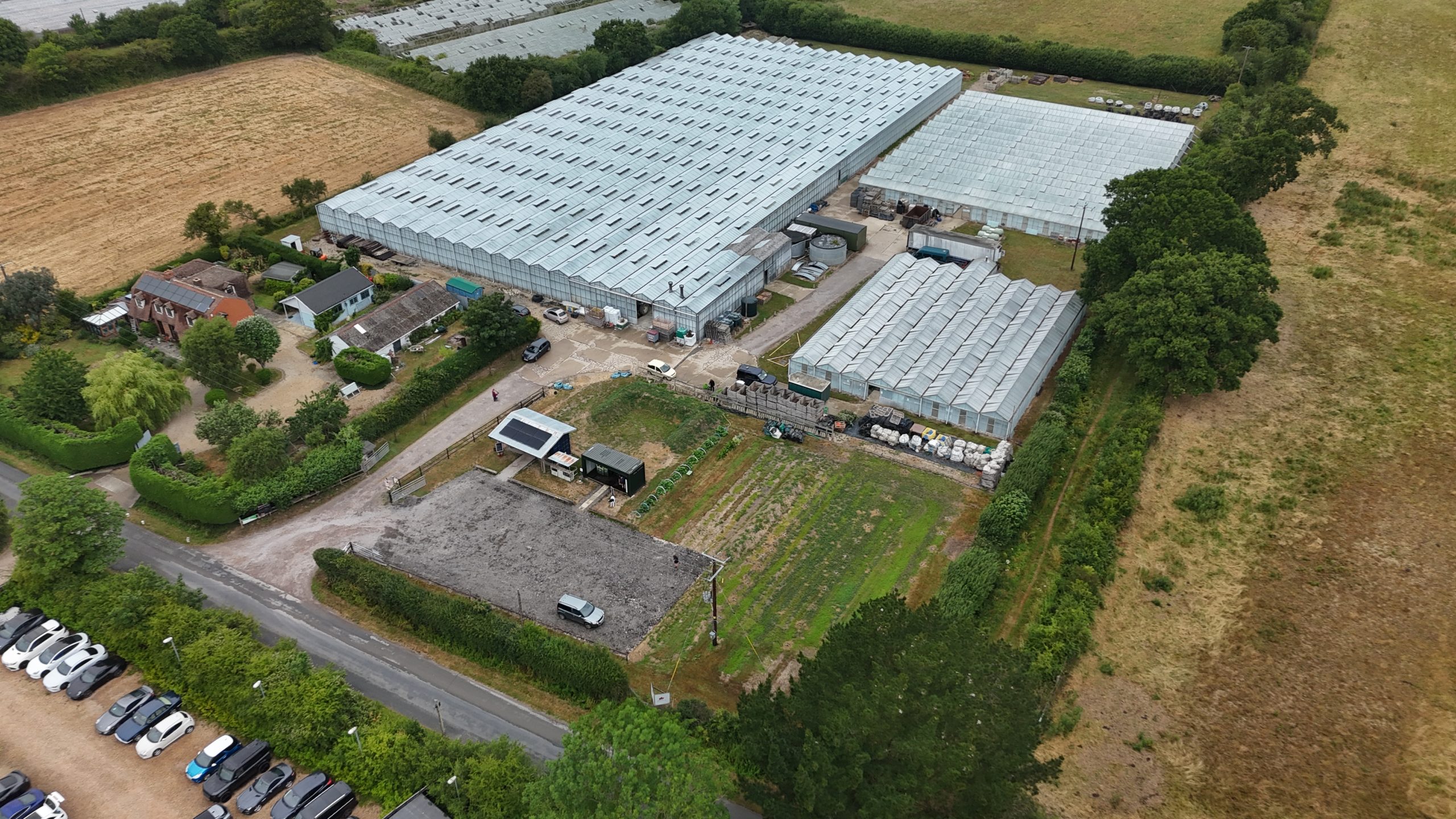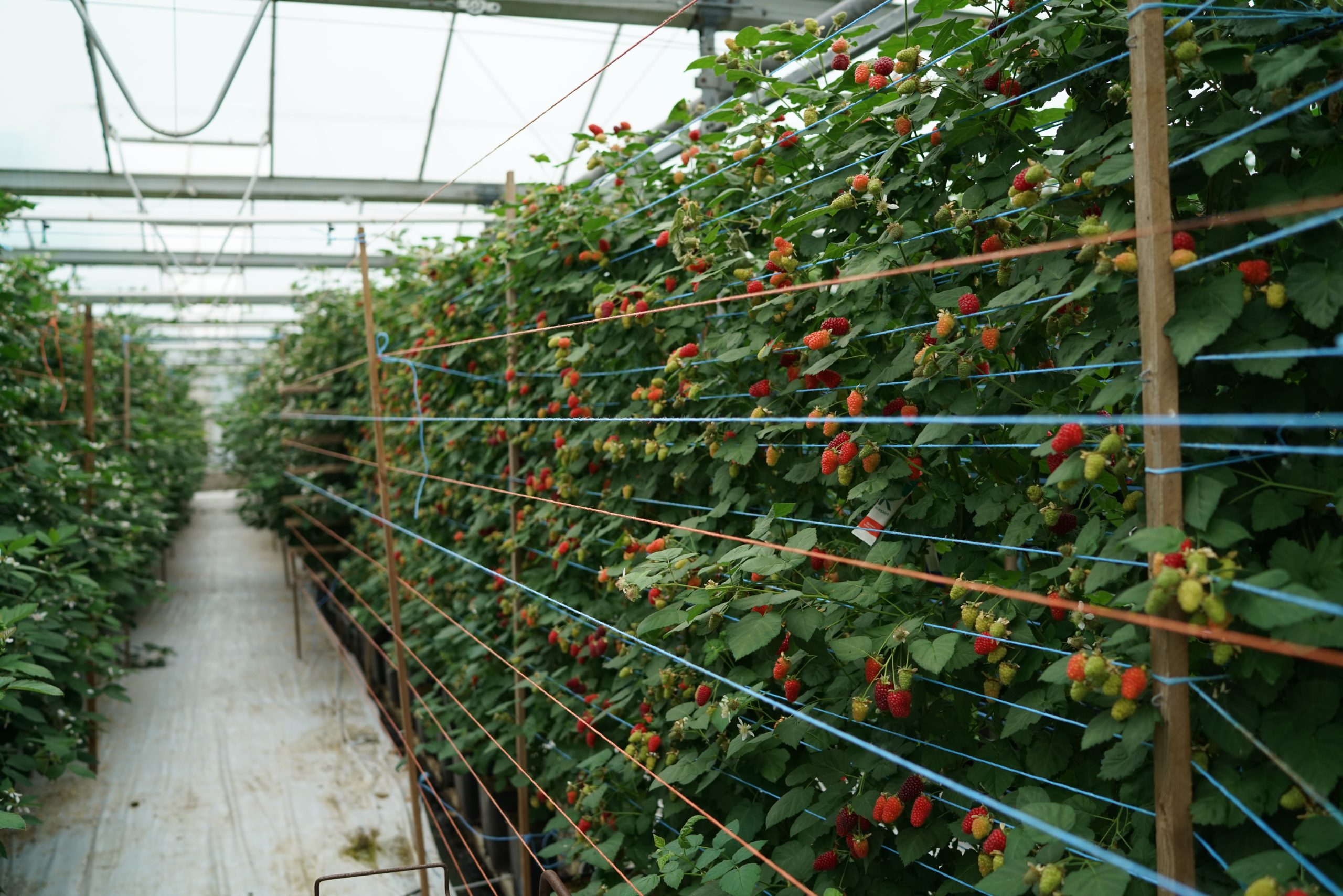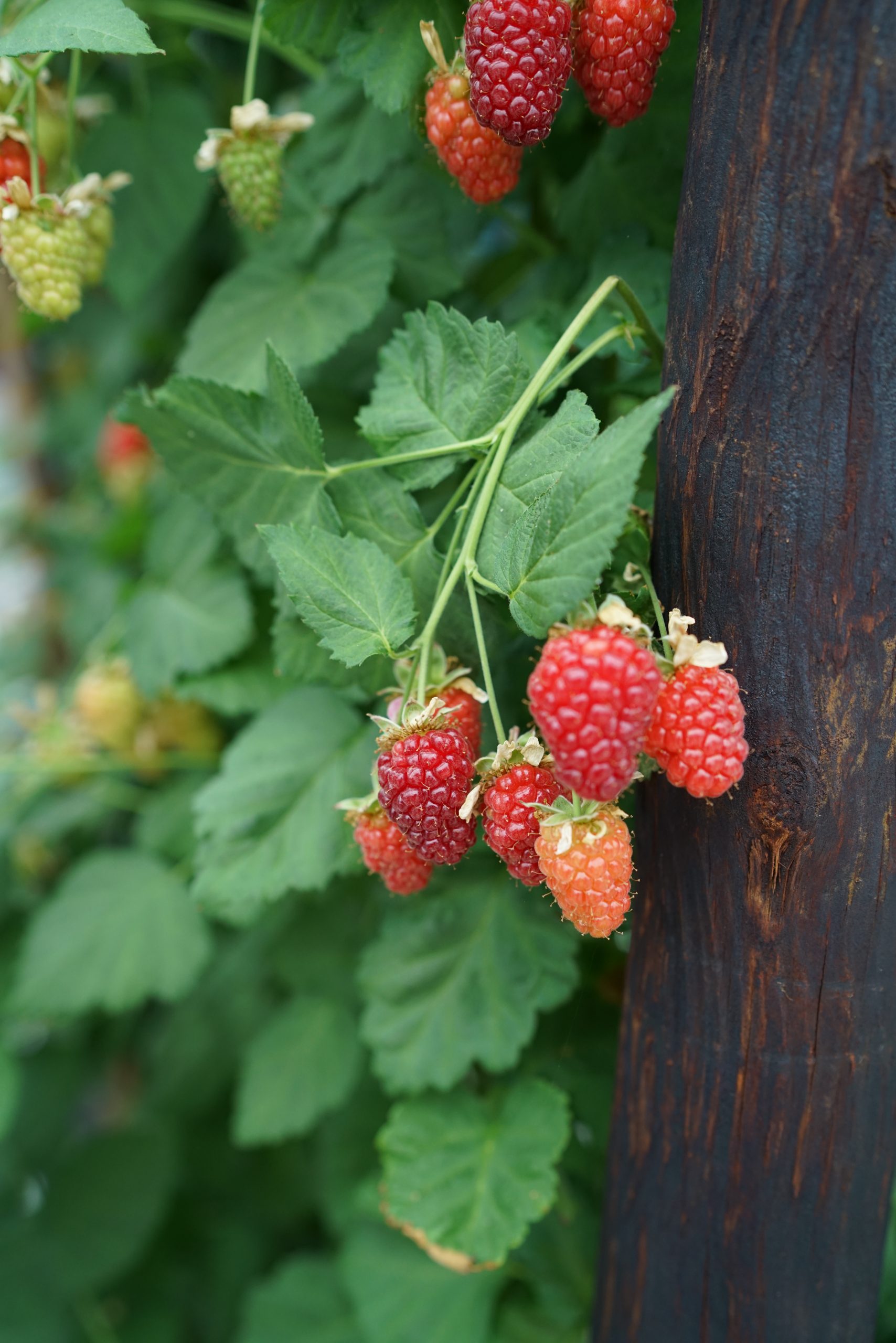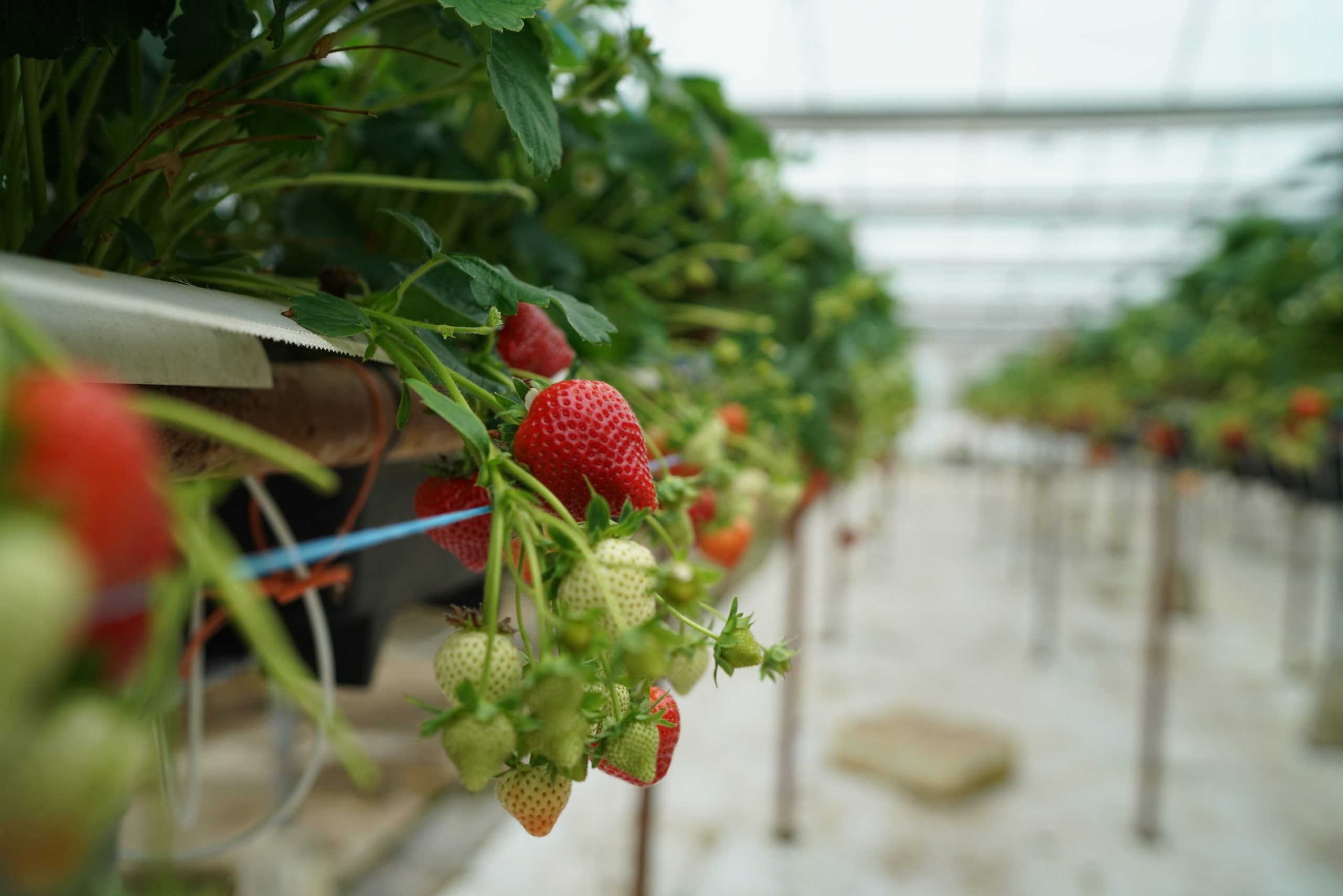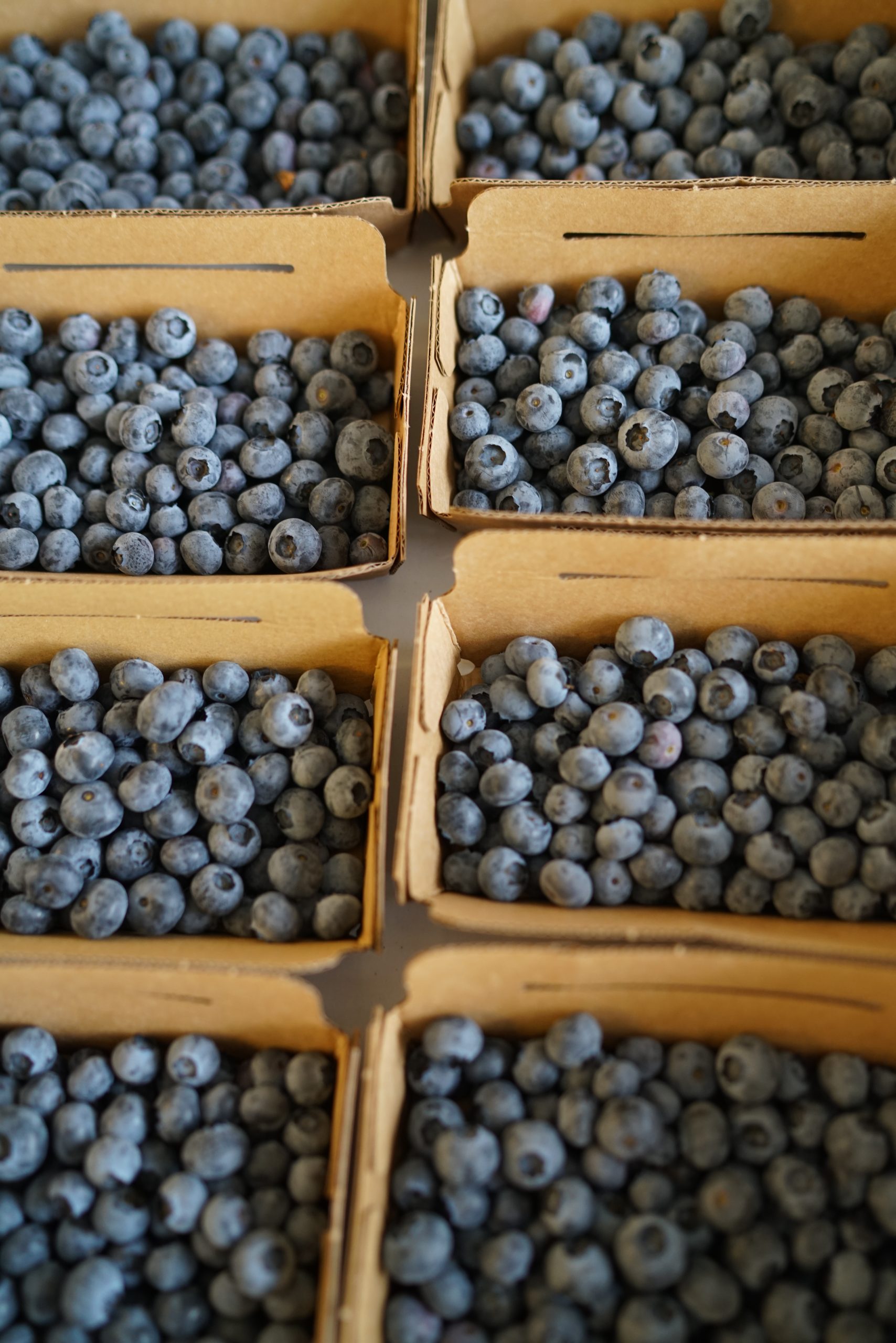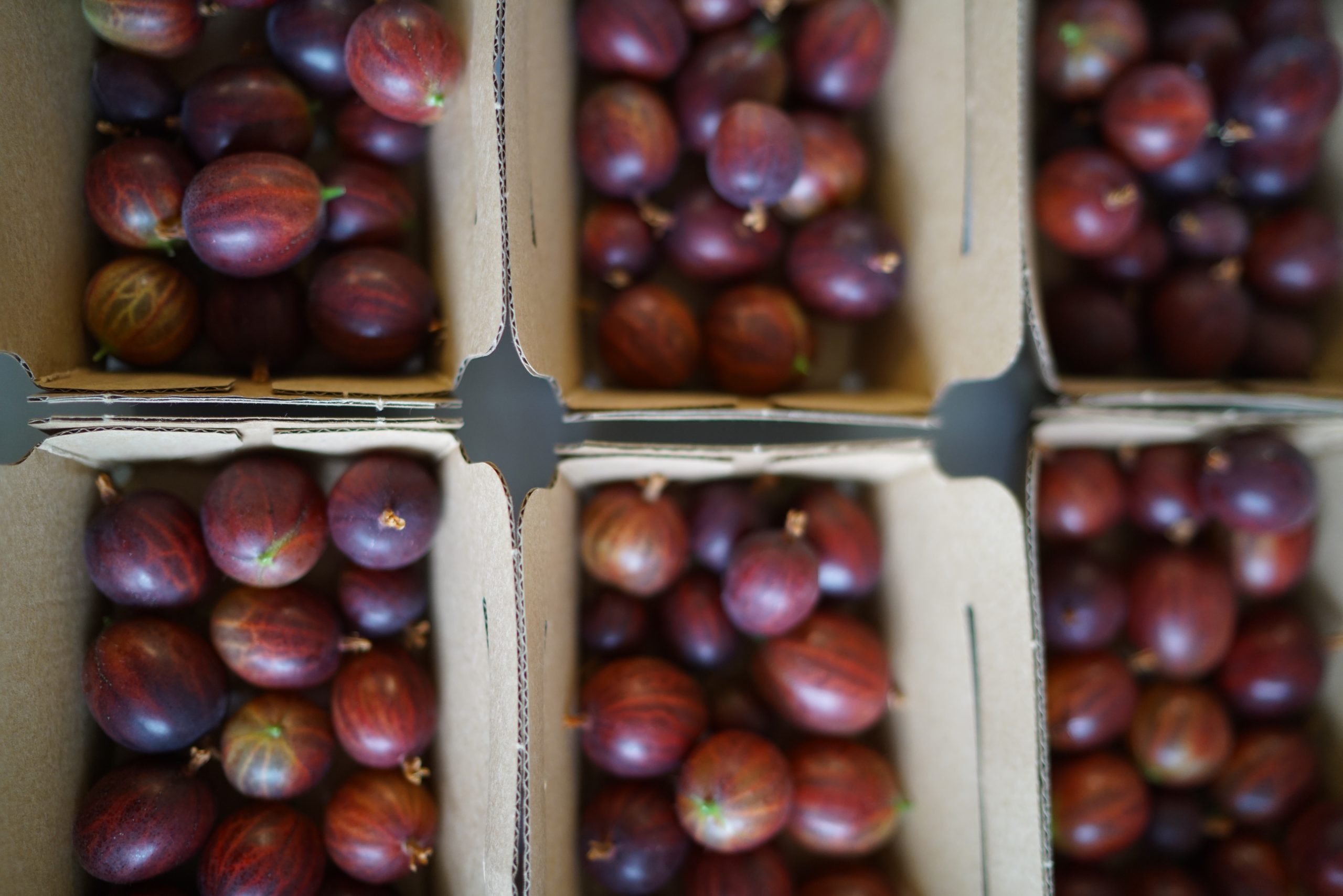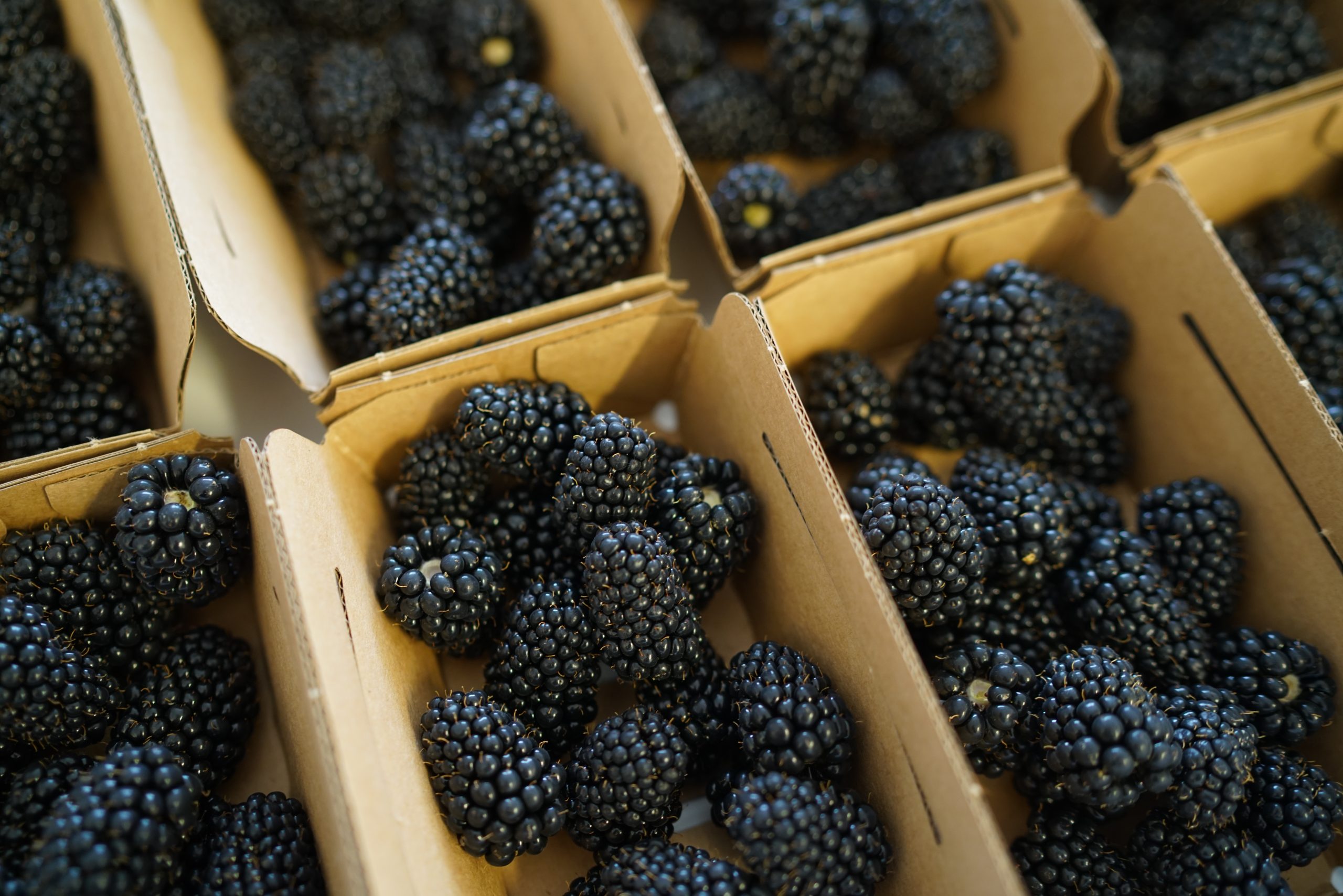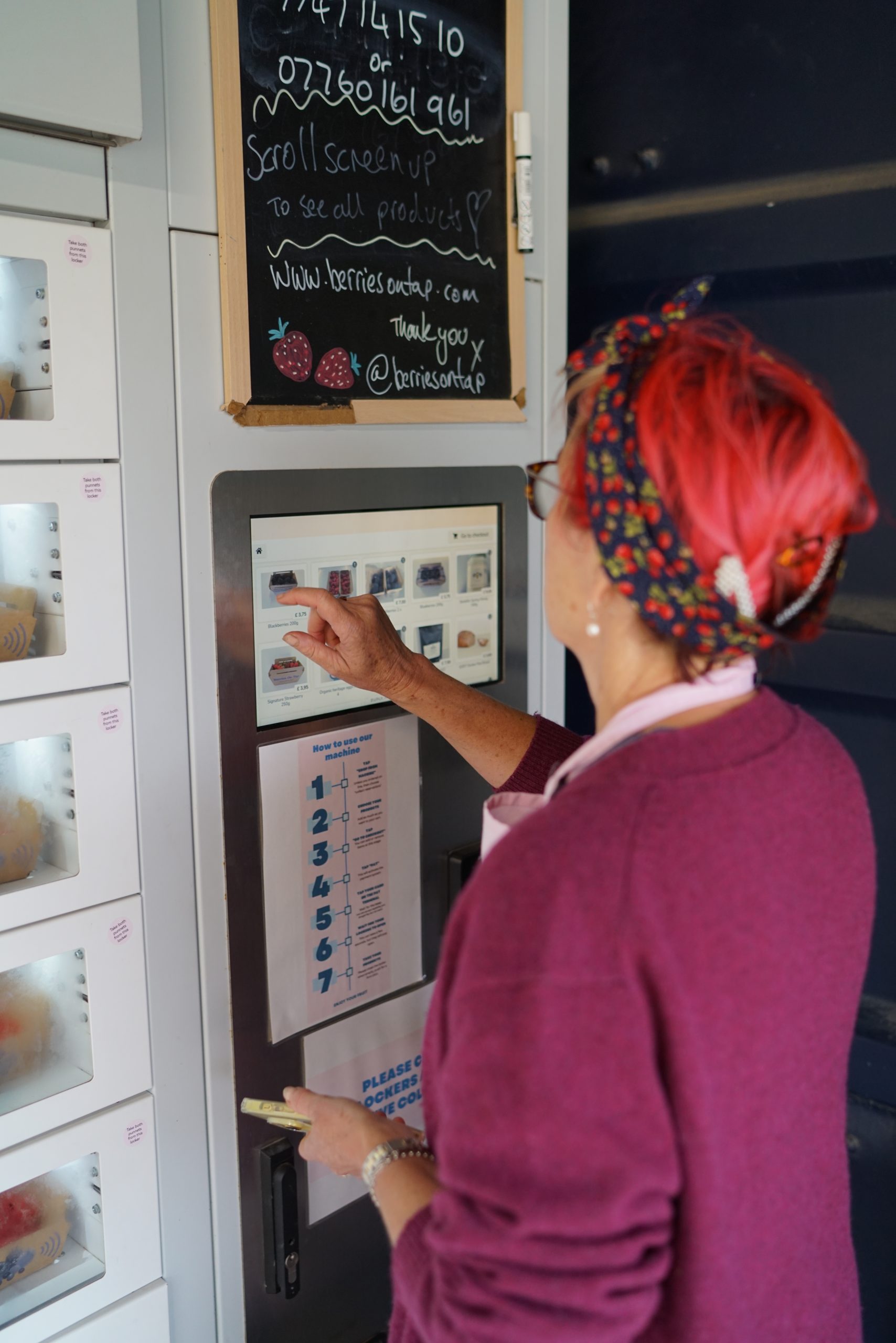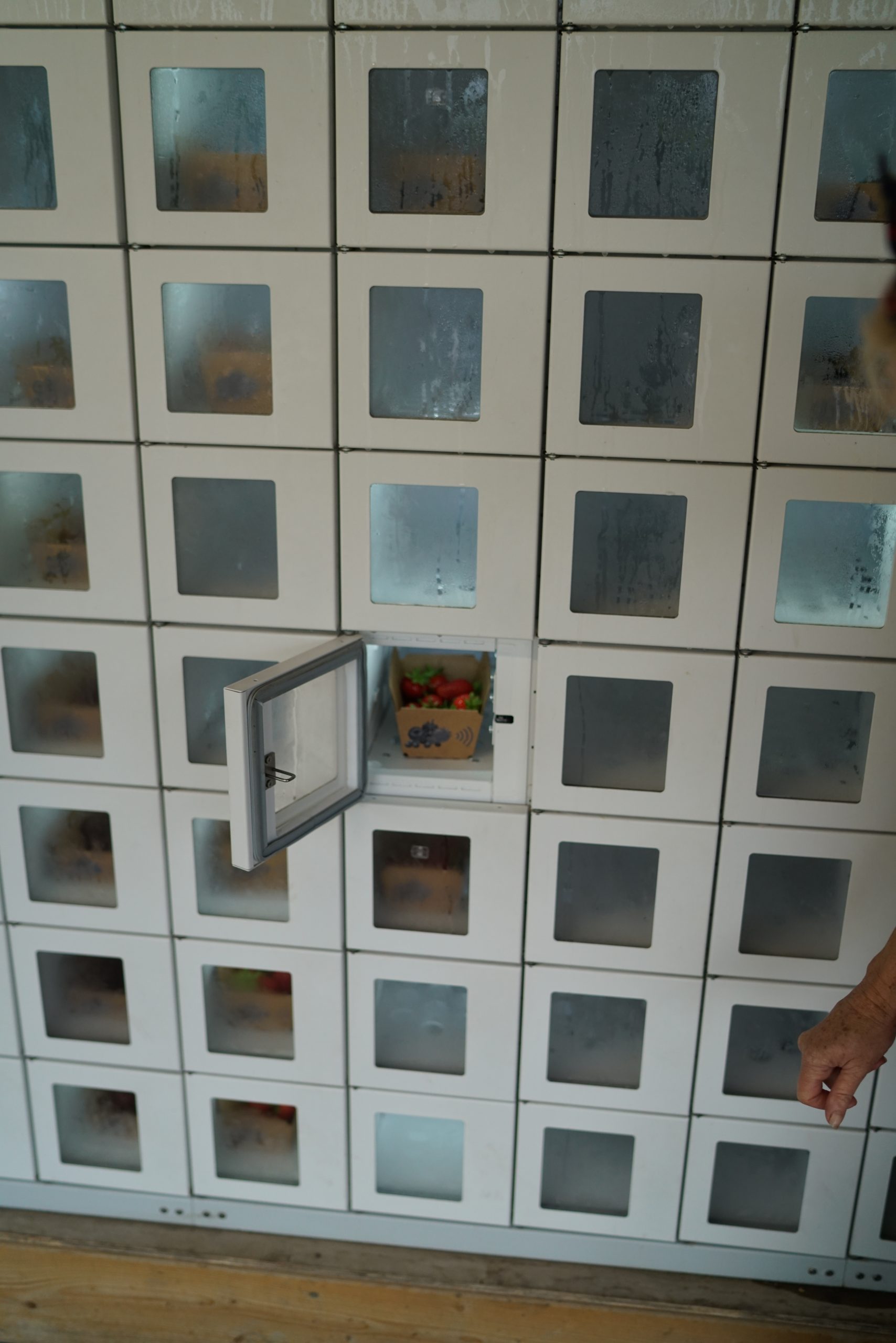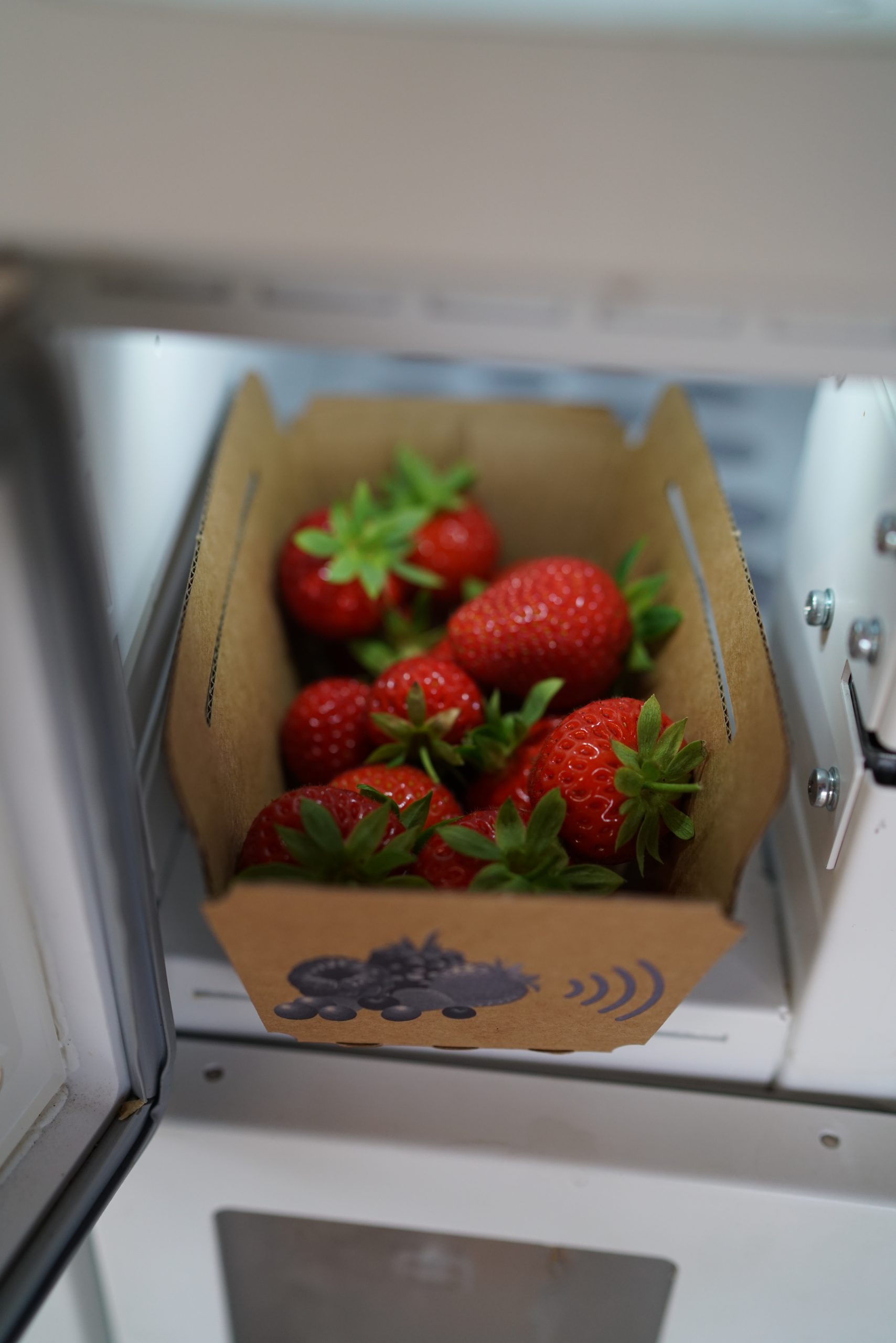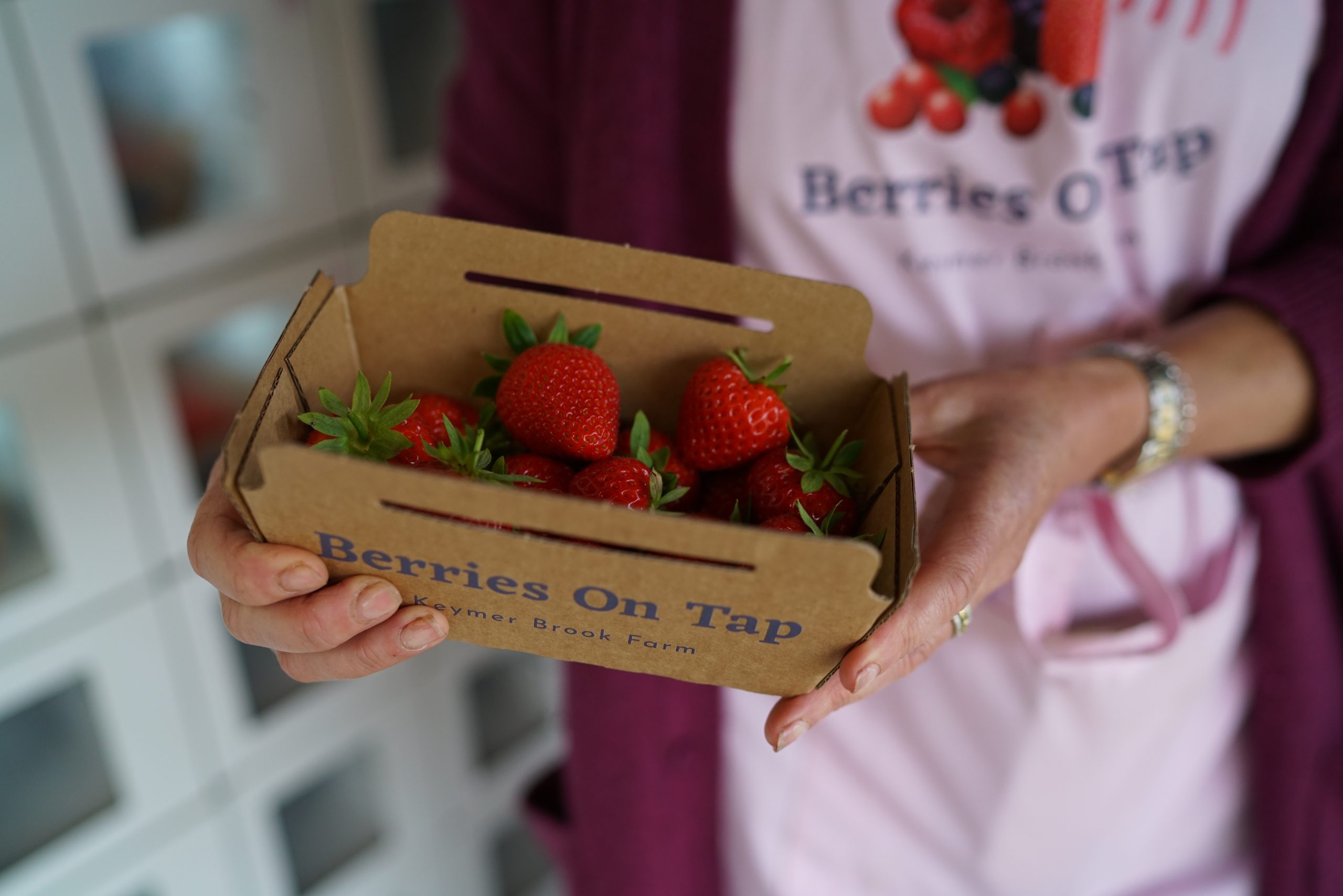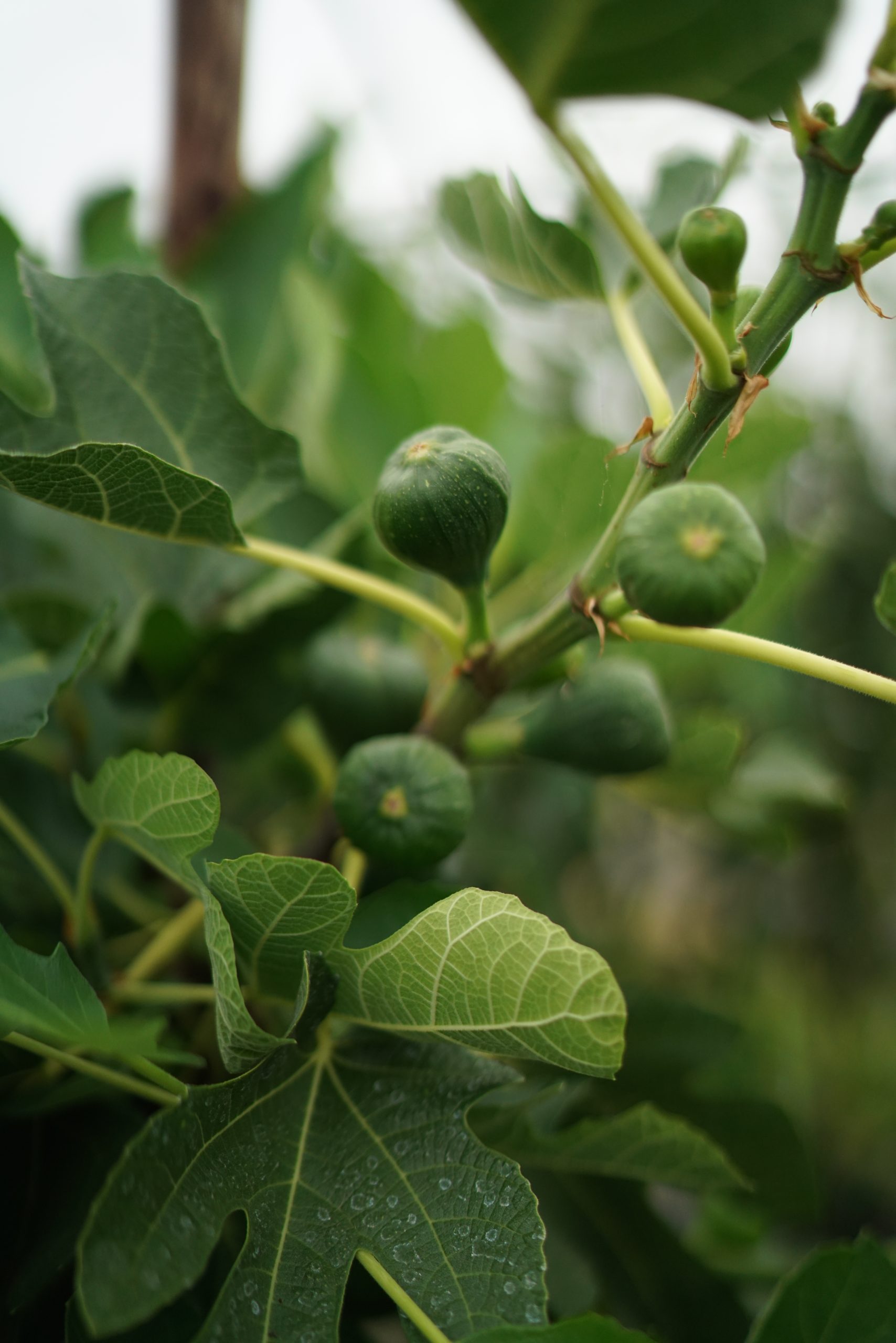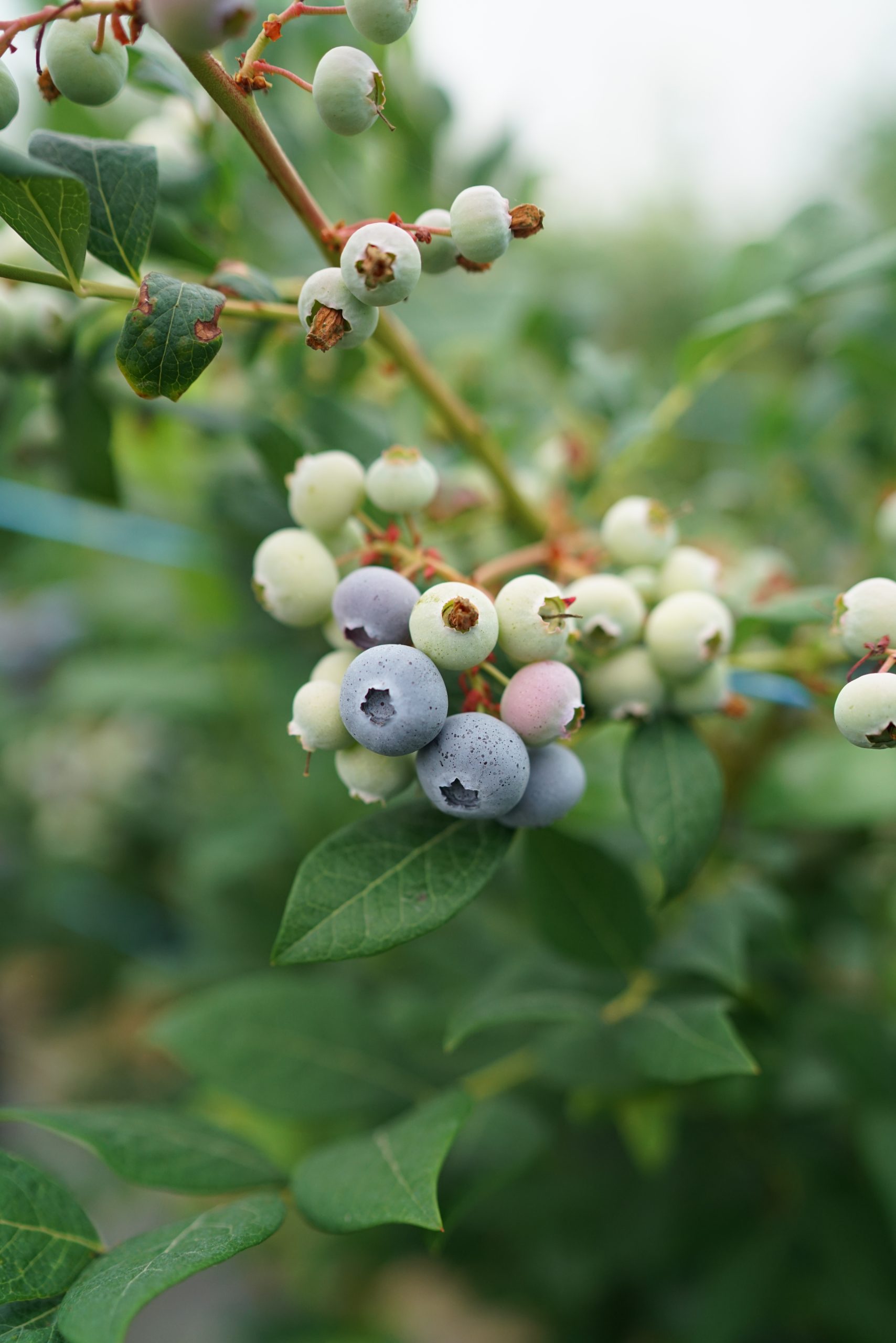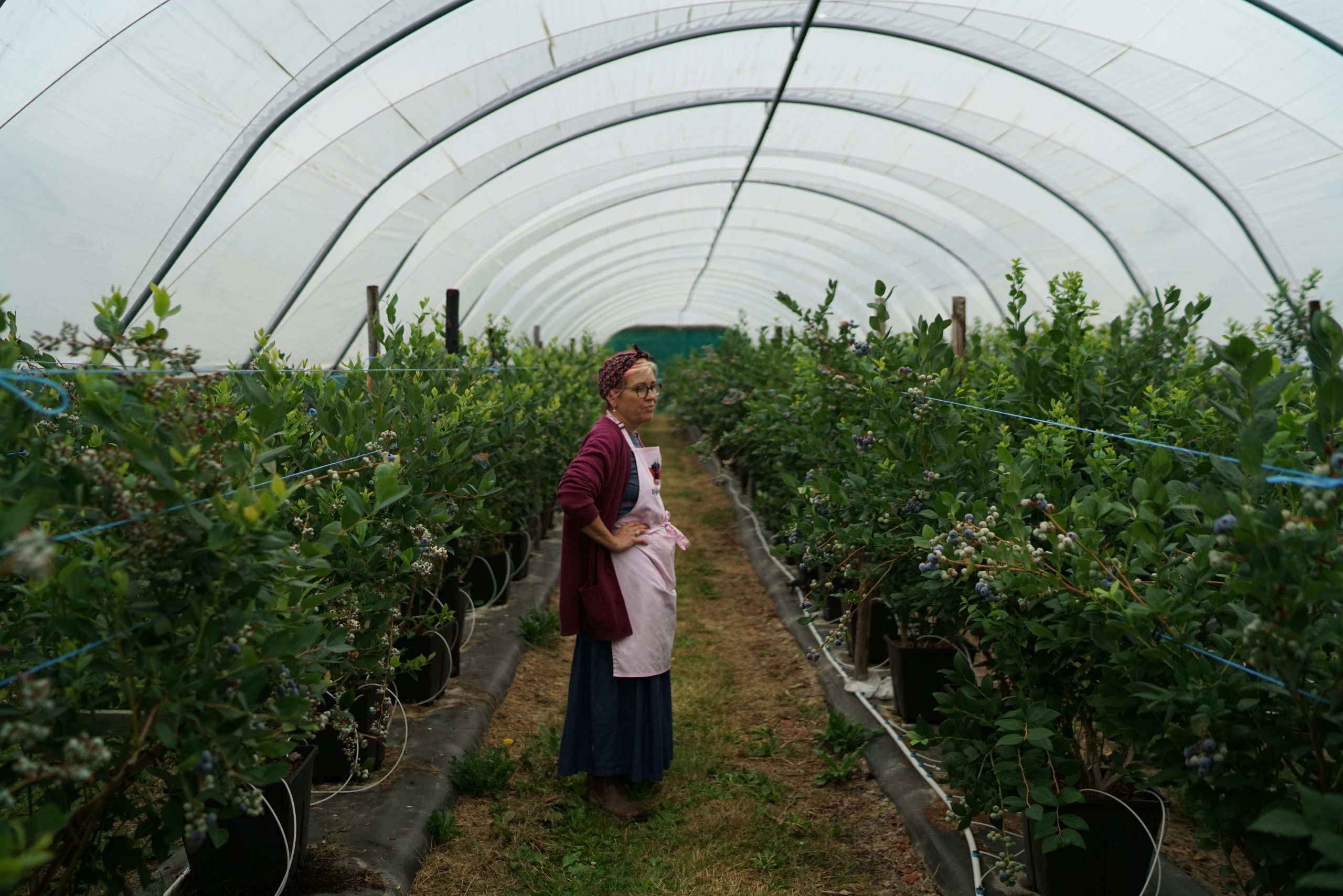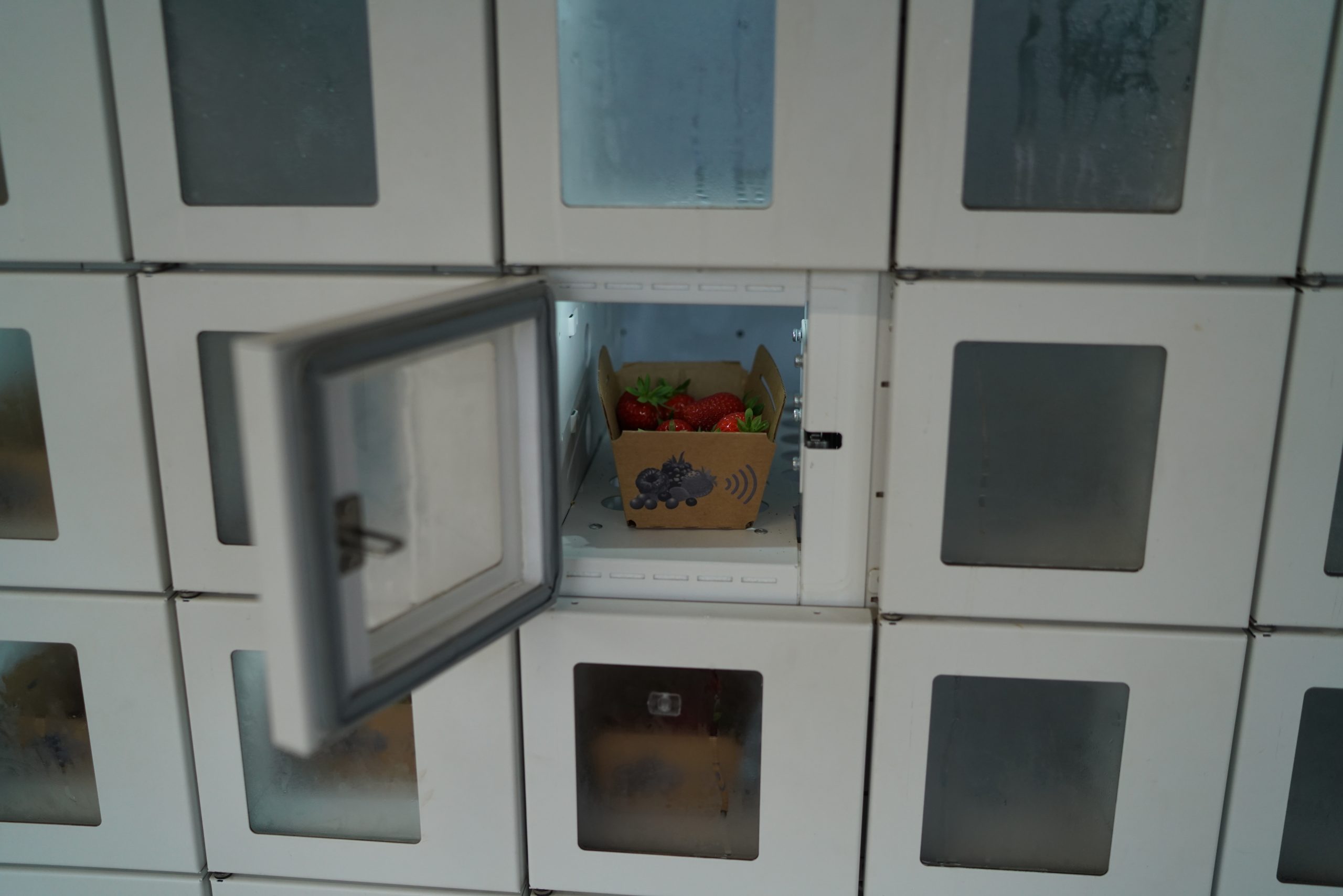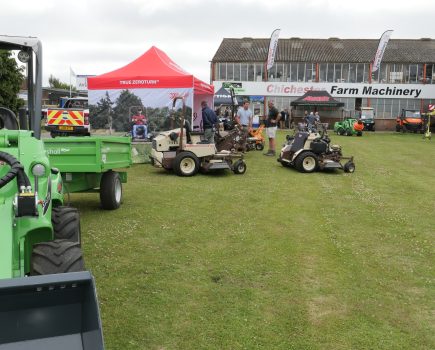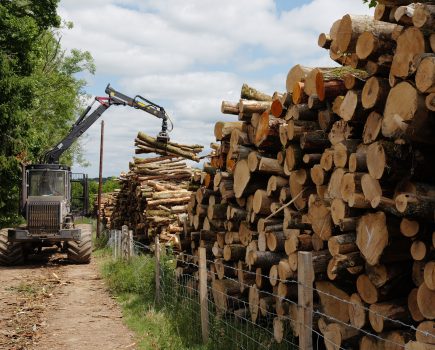This month Nigel Akehurst visits Berries on Tap, a small, family run soft fruit farm near Selsey in West Sussex that is pioneering a new model by selling premium berries directly to consumers via vending machines. He met mother and son Kathy and Archie Evans to learn how and why they transformed their business – and what might come next.
Tucked away on a modest parcel of land that was once part of an old Land Settlement Association scheme, the Evans family has built something quietly radical. What began as a high-yield operation supplying strawberries and berries to major supermarkets has, over time, evolved into a hyper-local, ethical and tech-savvy business focused on quality and on direct customer relationships, all from a vending machine at Berries on Tap.
From boom to burnout
I met Kathy at the entrance to the farm, beside their impressive-looking vending machine housed inside a converted shipping container. Customers were already stopping to buy fresh punnets of berries, grown just 20 metres away in their glasshouse.
As we walked over to meet her son Archie, who manages the farm, Kathy began to explain the history of the business she and her husband Nick started in 1991. At its peak, the farm produced over 300 tonnes of fruit each year, supplying supermarkets and high-end restaurants, she said. They employed 20 permanent staff and more than 130 seasonal workers.
“We grew quality produce and were quite innovative in what we did,” she told me. “But after years of squeezed margins and supply chain pressures, it just wasn’t viable anymore.”
Their final commercial season was in 2019. “It was probably the most awful time of our lives, jacking that in,” she admitted. “But we knew something had to change.”
Rebuilding from the roots
The turning point came when Archie returned from travelling and working on large arable farms in New Zealand. He was keen to get involved, but only if the farm could adopt a more sustainable and future-facing model.
Inside the glasshouse, Archie was testing the brix (sugar) levels of some ripe strawberries using a refractometer. He handed me one to try; it was incredibly sweet and juicy. “That’s a (brix value of) 12,” he said proudly, explaining that the very best supermarket fruit usually scores around nine.
Returning to our previous topic of conversation, he chimed in: “We were all pretty adamant that we didn’t want to go back to supermarkets, so we needed a different solution. The first thing we had to solve was: where are we going to sell the stuff?”
That answer came in the form of a refrigerated vending machine installed inside a custom-fitted shipping container, positioned just off the main road. Customers could now buy freshly picked strawberries, raspberries and blackberries, along with other local products such as organic milk, cheese, sorbet and more, without tills or shop staff.
“It’s kind of a juxtaposition,” he pointed out. “You’re buying from a machine, but it’s got a real connection to the farm. We’re always here restocking, doing videos, chatting with people. The community’s totally bought into it.”
A new kind of farming
When it came to sustainability, Archie explained that they had switched to growing everbearing varieties in unheated glasshouses and polytunnels. “None of our crops are heated, only frost protected,” he said. They had consciously moved away from using fossil fuels, unlike many commercial growers who use energy to extend the season and improve margins, he said.
The main vending machine is now powered by solar panels, with about 80% of its energy needs met by renewables. Archie told me they planned to triple the size of the array and install a battery to make the setup fully self-sufficient.
They are also rigorous about their sourcing. “Everything we sell is local, within ten miles, and either grown or made with the same ethos as us,” Archie said. “And we’re super honest about it, because in my generation you can fact-check anything in five seconds on your phone. Trust is everything.”
Premium product, zero waste
The business had also become impressively resilient by embracing seasonality and minimising waste. “All our class two fruit gets frozen, either for winter sales or to supply collaborations like sorbet with Gelato Gusto or fig ketchup with Squished,” Archie explained.
They even stock frozen fruit in the vending machine when fresh is unavailable, and customers love it. “We’ve found that our customers are now really in tune with seasonality,” he said. “They get it. If there are no strawberries one week, they’ll pick raspberries or wait till next week.”
Labour remained one of their biggest challenges. “To grow good strawberries, you need a lot of attention to detail,” Archie told me. “And that takes people. Dad always says it’s easy to grow strawberries, it’s just really hard to grow good ones.”
Still, they had managed to set a price that reflected the quality of their fruit, around 15 to 25% more than the supermarket standard lines (roughly in line with premium lines), without alienating their customer base. “They know exactly what they’re getting and who they’re supporting,” he said.
In terms of the business, Kathy explained that they were now in year three of the new venture, with turnover up 58% and profit up 65% on last year, when they just about broke even.
“It’s been a good year for fruit, which helps, but we also know footfall has increased because we’ve processed over 3,000 more transactions so far this year.”
Innovation behind the scenes
As Archie and his team got back to work, Kathy continued our tour of the glasshouse. Eager to help me take some photos of the beautiful fruit, she showed me rows of delicious strawberries, raspberries, blackberries and tayberries. We then headed into their cold room, where the fruit is chilled and packed in punnets ready for sale.
Before heading back outside, Kathy took me to see one of Archie’s latest ventures, a mushroom lab, tucked away inside part of their old packhouse. Spotting a good commercial opportunity, he has started growing high-value varieties like Lion’s Mane on recycled coir, a substrate first used for strawberries before being pasteurised and reused for mushrooms.
“It’s this type of constant innovation and thinking outside the box that’s key to making a direct-to-consumer model work,” she said.
A scalable vision?
Back outside by the vending machine, business was picking up. Several regulars stopped to chat, some commenting on the shiny new organic milk vending machine, a recent addition to the lineup. With a steady stream of local residents, tourists, cyclists and even horse riders, Berries on Tap has become something of a community hub. Weekends can be especially busy, said Kathy, often requiring at least one staff member just to keep pace with restocking the machines.
Pointing to their pop-up stall between the two shipping containers, she added that they invited local florists, cheesemakers and artisan producers to sell their goods each Saturday. “It’s an affordable space for others and a value-add for our customers. Win-win,” she said.
Looking ahead, Kathy said that Archie was keen to replicate their vending model elsewhere. He now has a standardised container design with electrics and all the internal fittings, and was exploring ways to build and ship them to other farms.
“It’s not a cheap solution,” she admitted. “But can be a game changer for a small farm business like ours.”
She gave me a quick demo of their main vending machine, which retails for around £40,000. It is Italian-made, with a touchscreen interface that uses Dutch software. Once payment is taken, a small door pops open to allow the customer to collect their fresh punnet of fruit; simple and efficient.
Next to it stands a second vending machine containing frozen products, including ice cream, sorbet and frozen berries. This machine plays a vital role in the business’ winter offering, keeping the business active all year around.
Social media and supermarket realities
As well as having a modern website at www.berriesontap.com, most of the family’s marketing is carried out by Kathy, who manages the Berries on Tap social media channels, posting regular updates on what’s in stock and any offers. With nearly 3,000 engaged followers on Instagram (@BerriesOnTap) and over 5,800 on Facebook, it has become a key part of the business, helping drive footfall and foster community.
In addition to daily product updates, Kathy also shares educational videos, including clips of her husband Nick explaining more about the seasonality and growing conditions of each fruit. Our conversation turned to the broader food system and the dominance of supermarkets. Kathy admitted that supermarkets are good for consumers, helping to keep food prices low, but said the long-term impact on farms had been damaging.
“It’s hard to make this pay. It’s long hours and very little money, and that has been driven by the supermarket pricing structure,” she said. “The balance of power is just so unequal. Once you’re in that system with 400 or 500 tonnes of fruit to sell, you can’t sell that at your farm gate; it would crash the market. You have to supply the supermarket.”
She was not optimistic about political change, either. “I don’t think any government will take it on, because nobody wants food prices to go up,” she said. Still, she felt a cultural shift was underway, one being led by younger generations.
“There’s a kind of Arts and Crafts movement happening among 25 to 35-year-olds. They really care about where their food comes from,” she said. “How long-lasting that’ll be, I don’t know, but it’s a real opportunity for more farmers and growers to redress the balance of power.” She also pointed to the growing number of young people buying their fruit and milk direct and stories of local children trading Berries On Tap fruit instead of sweets in the school playground.
Final thoughts
As I headed home, I reflected on what I’d seen and heard. The Evans family has successfully rebuilt their business from the ground up and is no longer at the mercy of the supermarkets. Berries on Tap might be small in acreage, around 10 acres in total, but it punches well above its weight in terms of creativity, sustainability and community connection. With simple, scalable solutions like vending machines gaining traction, it feels like only a matter of time before more growers follow their lead.
Farm facts
- Grow strawberries, raspberries, blackberries, tayberries, blueberries and figs in approximately 10 acres of glasshouses and polytunnels
- Produce around 20 tons of fruit per year (relatively small numbers for a commercial fruit farm)
- 15 tonnes strawberries
- 3 tonnes raspberries
- 1 tonne blackberries
- 300 to 400kg tayberries
- 1 tonne blueberries
- 300 to 400kg figs
- Sell all their fruit through their onsite vending machines either as fresh or frozen (second class fruit)
- Grow their own, high value, mushrooms
- Employ three full time and nine seasonal workers
- Kathy Evans
Photos: ©Nigel Akehurst
For more like this, sign up for the FREE South East Farmer e-newsletter here and receive all the latest farming news, reviews and insight straight to your inbox.

